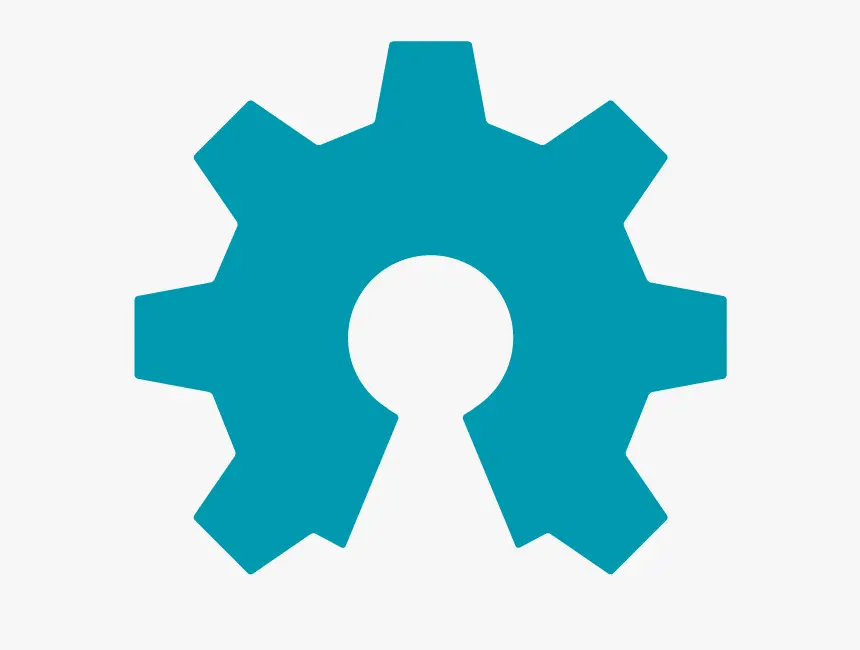In China, you can’t exist without a smartphone, because for all existential things you have to do (paying bills, buying tickets etc.) , you are forced to use the almighty wechat app. Smartphones are a tool to manipulate and to spy on the population. It is a tool utilized by the ruling class, to control the masses. I hate the future and I hate “progress”.
Do you hate all progress or just smartphone progress?
Because I could rattle off a list that would take a day to get through with all the progress that I love.
No good progress is wiped clean by bad progress, and no bad progress is wiped clean by good progress. We can appreciate good progress without accepting bad progress.
What a dingus.
Elon is working on replicating it now with “X”. He’s already said he wanted something like that for the US
False.
Smartphones are not a tool to manipulate and spy on tge population. Nor are they a tool utilized by the ruling class to control the masses.
Dont assume that what happens in China will happen elsewhere.
You might appreciate the work done by purism to give us more control over our devices.
Good bit m8.
deleted by creator
Do you feel responding to tone represents something meaningful?
You might appreciate the work done by purism to give us more control over our devices.
Based off this line I’m pretty sure you’re trolling, Purism barely manages to ship a product in 5 years.
They had issues, but theyve been shipping phones this year and they run Linux.
We dont have to just use ios or android, and I think that’s a great thing!
Alternatively use graphene OS, or Calyx OS.
This comment has big Dwight Shrute vibes. What is the best bear?
Was it the “false” part? Because DUH.
Is it their intended purpose? No. Is it absolutely a function they’re used for? Yes. It’s a phone, the government absolutely spies on you with it
Adtech spies on you with it. The gov piggybacks on adtech.
Not just adtech. Wireless communication protocols too. The stuff Snowden leaked never stopped
Meh. Still nothing next to what CCP does in China.
Smartphones are not a tool to manipulate and spy on tge population.
Oh boy, wait until you learn about Google-Analytics on Android phones, or how they predict (or lets say know) where traffic jams are. Does the Section 702 of the USA ring a bell?
They certainly started as a good idea, but they evolved into a widely used surveillance tool for companies and governments across the world.
You barely have a clue if you think you’re informing me by mentioning 702.
Some sexy confidently incorrect material here
False.
Oh god yes baby keep it coming
yawn
Maybe we should step away from China for a moment given their government has a very strong motivation to keep tabs on its citizens and the fact their very mention is biasing the conversation and look at another country which has a strong smartphone presence and I often see posted on here as an example of privacy - Norway
We’re effectively cashless (I don’t think I’ve even handled cash since they swapped the banknotes over) and I think most people do their banking from bills to petty transfers on their phone. You can’t get a physical bus card, because that’s on your phone, or the ticket is attached to your bank card. We don’t have an all encompassing WeChat or even like, any homegrown social media. I’m not exactly sure which aspect of WeChat you’re honing in on so I can’t say Norway does that too, but we do an awful lot via our phones. I do have some gripes about how some things are set up, but they’re complaints that aren’t actually exclusive to this specific system.
Sweden is pretty much the same. Most places even refuse to take cash. I haven’t even seen the new bank notes and they were changed back in 2015.
The thing that is bothering me right now is seeing “cashless” establishments. Frankly, it’s kind of discriminatory, and I do not know how you can justify denying people goods and services if they are carrying the currency of the country they live in. That does not sit right with me.
If it’s a private business then that’s their choice. It’s your choice to not give them your $. I don’t see how that’s discrimination? If they have something that you really want, then you’ll choose a cashless option.
deleted by creator
I can’t take you to civil court if I’m claiming you won’t pay for something as you stand there waving the money in front of my face.
On this front. If you owe them money, they must accept cash. This is why people can pay thousands of pennies at tow yards. Or if you eat at a restaurant and they bring the bill, they can’t then say they’ll only take card, they must accept the cash.
Physical money is “…legal tender for all debts, public charges, taxes, and dues.” Notice that purchases/private charges or trades are not included in that.
deleted by creator
Mom and Pop store shouldn’t be forced to pay for a cash register and a safe. Nor face an increase possibility of robbery looking for cash.
Now, instead of homeless hanging out by the entrance/exit begging for change, they can hang out and beg a customer to take their $2 cash to buy them water.
They’re not being banned from buying something they might need. They just need to be more creative.
deleted by creator
Of course you don’t like an example that goes against your bs narrative.
Many places around the globe have been moving toward cashless purchasing. Hell, you can walk into some Whole Foods and walk out without any type of transaction. If you don’t think that level of interaction will become more wide spread… you seriously need to pull your head out of the sand.
deleted by creator
Bottom line is IMO it certainly isn’t discrimination. Homeless person with enough cash for a bottle of water that only has a cashless option can try to exchange their cash for someone to make the purchase. Now, if they have a hard time finding someone, you could argue that individual people that won’t help are being discriminatory.
How many have debit cards though?
deleted by creator
Wow, that’s pretty crazy to think that so many people can’t/won’t get a bank account. Are these people undocumented immigrants with no identification? Is this the same part of the population that is targeted by the ID laws for voting?
How are those people getting money? Is it really possible in the USA to just be paid with an envelope of cash? Or is it under the table work? Or if they are poor, is there any kind of benefit/welfare from the government? Don’t they need a bank account to receive those funds?
I’m just asking because in my country, I was able to open a bank account for free. I’ve had it for a year and I’ve never even deposited any money into it. But I have a debit card for that account. It seems impossible to me to have no access to a bank account. Even if you’re homeless, you’re still able to use your town hall as a contact address for official things.
Banks in the US are tricky business sometimes. They often want a lot of info (understandably) but someone does not have a home may not be able to provide some of it. They may not have a phone number, they may not have an address, they may not have either. Could also be undocumented individuals are part of it, I’m sure they factor in. Maybe someone decided to go “off grid” and stop using anything connected to the government they can and is now a mattress stuffer lol. Point is cash should always be acceptable outside of edge cases IMO.
Or if they are poor, is there any kind of benefit/welfare from the government?
Yes but it’s very mediocre generally unless their state/city has invested more into social programs, which is the exception and not the rule in the US. In my state unemployment insurance (welfare) is I think…237.00/wk so not even $1,000/mo (haven’t been on it in a few years now forgot exact number).
Homeless people usually only have cash. The kinds of places that are cashless usually don’t have goods at prices a homeless person would be purchasing something at but you can see how it’s a concerning trend. And I’m sure privacy minded individuals would prefer to use cash when possible
Alright, everything you said makes sense. That might even be how it is supposed to work. But I don’t like it regardless that legal tender won’t be accepted by a merchant. It feels like a corporation having a chokehold on what you buy and from where, and instant knowledge of people’s spending habits.
Is it even legal to be cashless? What happened to “this note is legal tender for all debts, public and private"?
What happened to “this note is legal tender for all debts, public and private"?
The key word is debts. When you want to buy something in a store, you owe money if you want it, but you have not incurred a debt. You can just not buy it. You and the seller start at an even place, trade goods/services for money, and end even. If you have a debt, you’re starting the transaction at a negative place and are trying to get back to even.
If one were to consume the product before getting to the register, is it then considered a debt? Asking for a friend that is going to get some beer.
No, that’s technically stealing. It would be a debt if they agreed in advance to give you an interest-free loan of the beer while in the store.
Dang, they thought of everything!
deleted by creator
Thats the norm in Sweden, most places these days no longer accept cash.
deleted by creator
San Francisco made it illegal for public facing businesses to be cashless. They deem it discriminatory towards people who aren’t able to get credit cards.
I’m the opposite; coming from a more digital society my worry isn’t that we’ll all use smartphones, but that people don’t have access to digital initiatives and will be left behind. I also am concerned with how some things don’t have more regulatory oversight.
In short, smartphones good, unregulated big tech, bad. Don’t throw the baby out with the bathwater.
Lets not forget another scenario, if there is some large scale issue - massive internet outage for whatever reason, you are done in cashless society… You cant buy basic stuff…
And such scenario is not out of a scifi, it happened in 1859 - Carrington event - a solar eruption so large, it completely crippled the whole telegraph system, which is much more resilient than our current electronic age… And its not a question if it happens again, but when…
But we dont even need to go that far, just look at Hawaii - large part of it is out of service due to current fires…
Thats why I would never abandon physical money completely…
So we stay stuck in the past because of the fear of a disaster, is that what you’re saying? The communities here can be such a strange mix of ludditeness and technology purism.
We can use new technologies, but we always should have a fallback option, in this case cash, otherwise quite bad things usually happen if the technology fails. Planes also have multiple backup systems, many even systems which can work during total electrical system failure. One would expect similar levels of redundancy in other crucial systems, but somehow this is not really the case.
The real issue is the concentration of power. WeChat is the gatekeeper and moderator of basically everything in China. They decide what apps and services are allowed to be successful. If they see something doing well, they have the data and the control to make a copy of it and replace the original with it. Sort of like Amazon does in the retail space.
unregulated big tech, bad.
Who should regulate big tech in the interest of the people? The corporatist state???
I was in China two months ago. While WeChat and AliPay are ubiquitous, it’s not true that China is cashless. You can still use cash pretty much everywhere, but expect vendors to have to rummage for a bag of cash behind the counter then panic as they don’t remember how to count money.
But honestly, it’s not that different from Europe and North America. When I’m in, say, Canada or France, I’m using a Visa credit card through Google Wallet for absolutely everything. Not sure I trust Google and Visa any more than WeChat.
It’s unironically good that there is further centralisation, integration and efficiency in payments, reservations, bills. What China is doing is It’s progress and future. You just can’t imagine that anything big and centralised can even in principle work for the people. WELL IT CAN AND IT SHOULD. No need to be a Luddite or dogmatic libertarian about it. What you are really worried that government or big corporation would control it. And if you are one of those that can’t process the idea that government could ever be trusted in anything, because of bad experience (and probably partly because of propaganda) then it gets to be understandable position, but it isn’t in reality like that and doesn’t have to be like that.
OK corpocuck.
Yeah, you can totally trust government and big corporation, just like in Canada. /s
web.archive.org/web/20220317115211/https://www.nytimes.com/2022/02/22/world/americas/canada-protest-finances.html
Canada banks froze hundreds of accounts during trucker protests, some of them were just some random supporters which sent some bucks to support… So its not propaganda, and its enough to read history, there are plenty of examples, how governments struck down on its own people, why do you think there is a second amendment in US constitution ?
I want regulation and preferably nationalisation and putting them under democratic control to work towards social ends and not profit. Not corporate power, not fragmentation.
that impulse came from the socialistic Canadian government mainly, so tying them even more with state doesnt come with more freedom, but just more restrictions and control… Without their approval and suggestions, that would absolutely not happen.
We basically need fragmentation - to small local counties, instead of a multinational hegemony.
We basically need fragmentation - to small local counties, instead of a multinational hegemony.
That’s unbelievably reactionary and impossible. Is this just one of those takes that is founded on the belief that governments are shit and they will be shit no matter what and we the people cannon change anything or hope for anything better? So the solution is that we all go back to the “peasant commune” where we will each build our treehouses with people like to live and see life like us? Will work fine until one realises that supply chains enabling modern western lifestyle and technology are global and dismantling central states will both take down the infrastructure and bureaucracy that makes everything run. Plus if one doesn’t have the same or greater violence monopoly of centralised state there is no way to force outsiders or the neighbouring country just rolling over you.
People have tried this “going back to the simple, communal and smaller scale” many times and every time they failed, as if for example the transition from feudalism to modern states and towards higher centralisation wasn’t the next stage in the evolution of human condition and just some singular shit choice made by evil, ignorant or bad leaders of the past that we can just walk back on any time we wish. Genie is already out of the bottle as we say and now the only way is forward.
Its actually pretty simple, the same blanket rules which most governments try to push doesnt work, just for a simple fact, that the diversity of environments and needs coming from that cant be captured and decided by centralized point of control. Lets just take guns - most city ppl try to ban them and reduce, because in crowded environments, even if a cop trying to stop someone, he can often put others in to danger just due to how crowded those places are. But on the other hand, if you live on a remote location, where all kind of wild life threatens you, and any help hour away, not having a gun is basically a death sentence. Yet, governments trying to push a blanket policy for both - and that simply shows how ignorant that centralization can become. And this is true in basically all aspects of life, which more and more the government try to regulate.
There can be some level of centralized coordination, but it always have to be tied to the needs of those smaller local units and they have to have the last say in it and it must be a hierarchy of this control coming from the bottom…
That is not an argument against central government, it’s an argumenta against bad governance. Many things have clauses for special events and circumstances.
I honestly think the US is at that point. I need a phone to clock in, you can’t find price checkers anymore, physically paying bills just doesn’t happen anymore, checks are becoming obsolete. Stores are downsizing in favor of online markets, banks are closing lobbies in favor of digital. We love in a digital world and while it’s technically possible without it still, very difficult to do so.
My grandmother doesn’t have a cell phone or computer and gets around just fine. The US definitely accommodates people without those abilities or who have disabilities. Yes it’s way slower and inconvenient but always possible
yeah and the problem here would be that it all would happen in one app? Seriously? It would only be a problem if google or Microsoft owned and controlled it and ran it rampantly for their own profit, not if it’s handled as a public utility as such things should. That’s why WeChat-like apps are progress and the future.
No, centralized applications should never be the future. Of course technology that connects us is the future. But I’d prefer to see a federated system for that, similar to lemmy
In some applications centralisation is the only feasible solution. Decentralisation and cynical fear of centralisation is never the excuse to create and accept shit.
We live in the age of information. Data is power. So centralization of data is centralization of power. I prefer the power to be distributed a bit more equally than it is nowadays.
I agree that sometimes centralization is the only feasible solution. But those cases should be kept to a minimum, regulated and closely monitored
You’re not forced to use smartphones. I happen to live in China, and there are people without them.
You can buy tickets at the counter or vending machines, you can text or call instead of sending wechat messages, you can pay bills by card or direct debit, and supermarkets all accept cards (Chinese ones, that is) or cash.
People use wechat or alipay out of convenience. Just like people in the West use whatsapp, signal, fb messenger, telegram or whatever else there is. And some of those are testing payment service integrations (whatsapp pay for example is live in India since a few months ago).
You don’t like it - don’t use it. Nobody will force you. But if it takes me 7 seconds on my phone to finish a task vs. 2h in person, guess which one I’m choosing.
Edit: Typo
“Nobody will force you.” RemindMe 1 Year.
I’ve been here for 6+ years, and nobody forces me. Which point are you trying to prove?
Yea I also lived in China for 3 years while doing my masters and OP clearly doesn’t know what he’s talking about. Everywhere takes cards and cash in addition to the digital payments. And no service I used was digital only.
Edit: The only requirement I encountered was a local phone number. Not a smartphone.
Push for mobile phones that have open source operating systems like GrapheneOS. It’ll probably be the most secure and private device you’ll ever own. Then the issue is making these proprietary systems like WeChat, Google Services, whatever China uses. These should be accessible, and if it’s required for day-to-day life then you’re entitled to know every line of code you’re forced to rely on.
You can’t even open a bank account without a smartphone in China
Cash and other physical payment methods (Gold, silver, Goldbacks) are important. Same goes with email instead of phone numbers since email can essentially be free while phone numbers cost money to be registered and email is easily accessible on a computer and does not require a phone.
Every generation needs to adopt new technologies if they want to live in society. For some it was cars, for others it was phones, faxes or the internet. We also stop using older technology… for example, I’ve never sent a fax in my life. It probably sucks for people who still want to send faxes, but now you scan and email or take a picture and send it via your favourite app. Today you need internet and a phone. It is what it is… like every generation you either keep up or get left behind.
Yes, smartphones can be used to manipulate and spy. You can also use them to learn, to be entertained, to drive to places you had no idea how to reach, keep in touch with people, and so on. I’m not being “controlled” by anyone when I pick my phone and make a video call to a friend or watch a tutorial about something I want to do. You’re only focusing on the bad aspects, so it’s not a surprise that phones are so evil for you. Plus, some people prefer to have all their tickets, cards, etc, inside an app instead of carrying coins and cards around… it’s not bad for everyone.
Regarding China, yes, some countries will be like them. Some won’t. There’s a lot of stuff that have nothing to do with phones that could have be done by other countries, but haven’t because things are different. Governments want to control people, but you probably don’t need a permit to travel from one side of your country to the other like they do in China or used to to in the Soviet Union. Maybe I’m being naive, but I don’t see why every country must become very controlling surveillance states. It’s possible, but there are other possible outcomes too.
I think it’s good to be aware about the negative aspects of technology, but to “hate the future” just because it may (or not) be worse than today doesn’t make sense to me. I’ll deal with the problem when and if it appears.
deleted by creator












